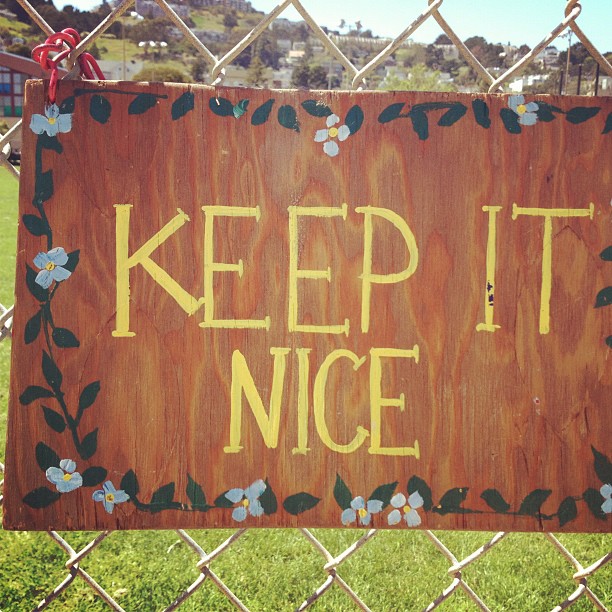Exploring Community
/ These days, 'community' might as well be my middle name. And, I'm happy to report, it's a topic that just doesn't seem to get old. Here's one aspect of community I've been thinking about lately:
These days, 'community' might as well be my middle name. And, I'm happy to report, it's a topic that just doesn't seem to get old. Here's one aspect of community I've been thinking about lately:
It goes without saying that what a community looks like, how it's defined, as well as what it feels like to belong to that community, is unique to each person and each community. This could be said for in-person as well as online communities; in fact last week I had an interesting conversation with some folks building an online community for Edible Schoolyard, Alice Waters' food education program, and I was struck by how their online community looks, feels, behaves and interacts so differently from the one I manage on OpenIDEO.
The topic of community also came up at IDEO recently, most notably on a floor-to-ceiling chalkboard in a bathroom in the SF office (funny enough, I've written about this bathroom before!). What I love about this image is that it very humorously reminds us that being a part of a community feels different for everyone. From informal recognition to bonding through adversity (with or without the bear hugs), this exercise proves that there's no shortage of answers when we're asking about community!
Although every community may be unique, when I look at this quick snapshot a few key tenets do bubble up to the surface:
- inclusiveness and a sense of belonging;
- common experiences or understanding;
- respect and appreciation;
- humor; and,
- swag (of course!)
While each community may serve its own population, focus on a specific cause or mission, or adhere to different norms or standards, I actually believe that one set of guiding principles can hold true for all communities: make me feel welcome, invite me to join in, validate my contributions, help me have fun, and give me the chance to share my community pride.
It's possible that I'm oversimplifying, but I don't actually think by much. I can attest that these are principles that I try to bring to my interactions with the OpenIDEO community everyday, not to mention the "real life" communities I belong to (family, friends, school etc).
What do you think? Do these principles ring true for you and the communities you belong to? What's missing? I'm curious to hear what you think.
And of course, as my friend Athena recently shared, when all else fails...


